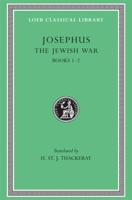Publisher's Synopsis
Sarah Dauncey offers the first comprehensive exploration of disability and citizenship in Chinese society and culture from 1949 to the present. Through the analysis of a wide variety of Chinese sources, from film and documentary to literature and life writing, media and state documents, she sheds important new light on the ways in which disability and disabled identities have been represented and negotiated over this time. She exposes the standards against which disabled people have been held as the Chinese state has grappled with expectations of what makes the 'ideal' Chinese citizen. From this, she proposes an exciting new theoretical framework for understanding disabled citizenship in different societies - 'para-citizenship'. A far more dynamic relationship of identity and belonging than previously imagined, her new reading synthesises the often troubling contradictions of citizenship for disabled people - the perils of bodily and mental difference and the potential for personal and group empowerment.









